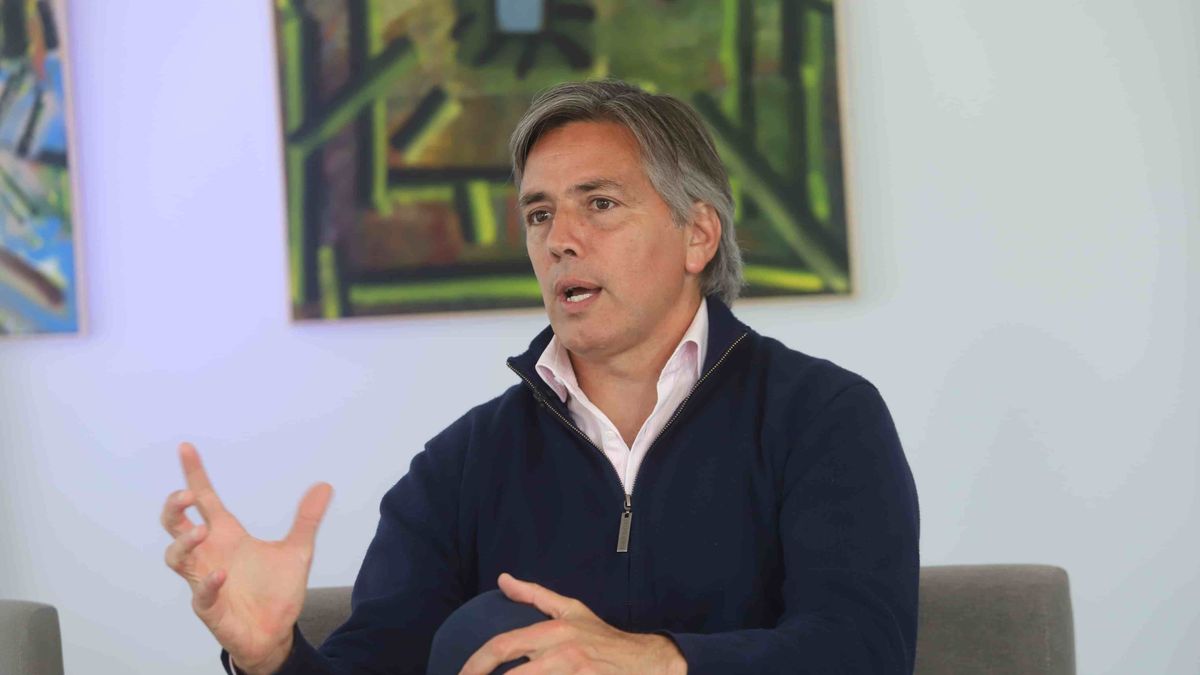He corporate director of PPI, Augusto Posleman, appreciated that the Government “is marching with conviction on the right path”, by participating in the fourth panel of Scope Debate about Finance & Investments in the Milei era.
During the series, which was moderated by the editor-in-chief of Buenos Aires Herald, Estefanía Pozzo, Posleman stated that the current management “It’s not that it’s doing anything so innovative, but it’s what countries that function well have done hundreds of years ago and in Argentina we didn’t do it and that’s why we were doing the way we were doing.”
“For months we have been constructive about what is happening in Argentina. “Going on the right path and with a lot of conviction, much more than we have seen in many years, if politics ends up supporting us, we believe it is a very relevant turning point,” anticipated about Milei’s policies.
And he reflected that “the prices show it,” highlighting the rise in Argentine stocks and the decline in country risk. “They are signs that the path is the right one, but there is still a long way to go,” he said.
Fed rates and the opportunity for emerging markets
On the other hand, Posleman admitted that “The international context is also helping, with a bit of a tailwind,” when referring to the lowering of rates of the United States Federal Reserve (Fed), whom he praised for “managing the times well and ensuring that there is a general conviction that we are going to see a soft landing, the best scenario for emerging markets.”
“That, if it continues to occur over time and the data continues to be good in employment, growth and inflation and falling rates, for Latin America in general and emerging countries it is very good data,” he interpreted.
At the same time, he recalled that “Whenever there was a drop in rates in the US, there was a movement of capital flow from central countries to emerging countries looking for some profitability and that is already happening,” Therefore, he raised the challenge that the Government has to “achieve that trust.”
Financial stability and the impact on the real economy
Regarding the improvement at a financial level and its consequence in the real economy, the corporate director of PPI compared: “In the financial market you can enter and exit with one click. That is why financial markets always anticipate what is happening.”
“It is not the same to put a million dollars of financial investment in a bond that will be released in five minutes, as in a factory, which will be released in ten years,” he compared and warned: “It is a necessary condition, but not sufficient, that the macro stabilizes. There will always be a stabilization in the financial system that tends to be minimized, but if this does not happen the real economy will not react. “One thing leads to another.”
“For me it is very relevant that the interest rate goes down, that the dollar and inflation are stable. It generates confidence so that later the SME that has to hire more people or invest to buy a machine is encouraged to do so,” he observed and also highlighted that for the Government “The most relevant focus is deregulation, as a way to gain competitiveness by lowering costs.”
Demand for pesos increases
Meanwhile, Posleman highlighted the growing interest in pesos. “There are more and more questions from those who had bought MEP and CCL dollars. Before it was unthinkable for someone to tell you ‘I have to sell and put myself in pesos’, but today people see that for five months they have lost a lot of money with the dollar, up to 4 or 5% monthly, while interest rates are slightly positive, which favors the carry trade,” he said.
In this regard, he indicated that “people did not have confidence before and in the last two or three months they increasingly choose to have a part of their portfolio in pesos at the rate,” which he highlighted as “a great achievement for the Government, because it is a genuine demand for pesos.”
The energy sector, money laundering and trust
When referring to the sectors that have gained momentum in recent times, Posleman assured that “the energy is clearly the standout, especially oil, but also mining and lithium,” while also adding to the banking sector, highlighting that “it had a rebound from historical lows because the State is withdrawing so that the market can begin to take on debt with stable rates and has to grow a lot.”
When asked about money laundering, he stated: “We always believed that it was going to be a success because in Argentina there is a gigantic black economy and it needs to turn to the real economy. 12,000 million in cash were laundered, but more is missing.”
The PPI representative recalled that “80 or 90% of the average investor is in cash assets or real estate, something that is a product of history.” “Changing that culturally is going to take 30 years because we already had a failed experience. So this is not a 100-meter race, but a marathon,” he said.
Source: Ambito
David William is a talented author who has made a name for himself in the world of writing. He is a professional author who writes on a wide range of topics, from general interest to opinion news. David is currently working as a writer at 24 hours worlds where he brings his unique perspective and in-depth research to his articles, making them both informative and engaging.




